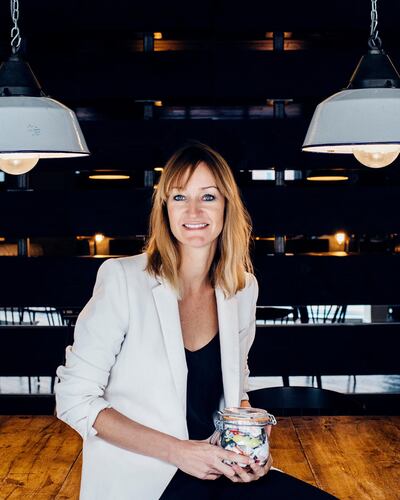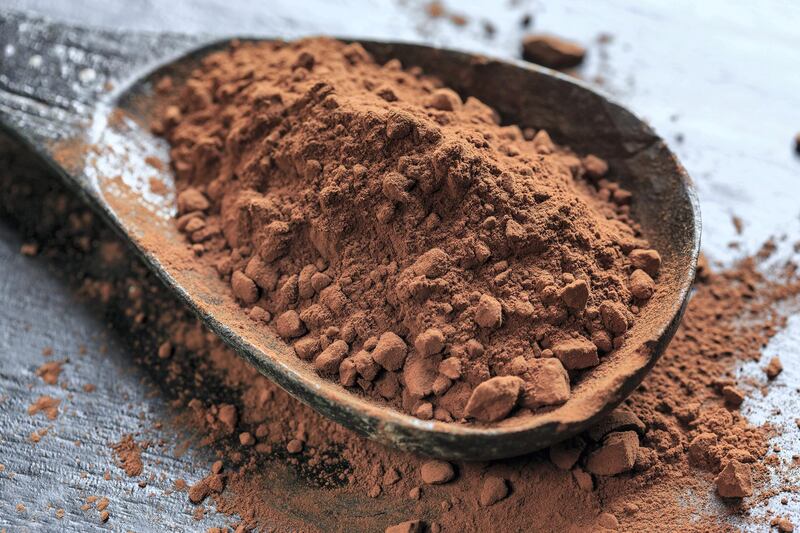If you’ve ever pondered about what happens to the plastic containers that hold your toothpaste/shampoo/mascara, or any other part of your cosmetics or essential toiletries kit, you may be one of an increasing number of UAE residents looking to reduce their plastic waste.
According to a recent report released by Dubai Carbon, the average Dubai resident produces nearly three kilograms of waste a day. Only about 10 per cent of this total sum is recycled, with most plastic waste finding its way to landfill.
This is one of the main reasons why those pioneering a "zero-waste" approach to life have started seeking out ways to reduce the impact of their beauty regimes on the planet. The zero-waste movement, started by the likes of Bea Johnson, author of Zero Waste Home, has been rapidly growing since Johnson began cutting down on her family's waste and blogging about it in 2008. "Zero waste doesn't mean being a hippy and living in the woods. We've been showing we can live a modern and clean life and enjoy a zero-waste lifestyle since Zero Waste Home started," says Johnson.

For many, zero waste literally means producing no waste at all (including things that could in fact be recycled). Zero waste in Johnson’s case means completely eliminating any plastic in her home, and she has managed to condense her family’s yearly waste into a small glass jar, completely forsaking plastic in favour of a cleaner, more sustainable mode of living. She boasts a social media following of more than 300,000 zero-waste enthusiasts, and a bestselling guide to living a plastic-free life, translated into 20 languages. “Refuse, reduce, reuse, recycle, rot (and only in that order) is my family’s secret to reducing its annual trash to a jar since 2008,” says Johnson, who believes that switching to a life without plastic is actually much easier than one might think. In fact, there are plenty of added benefits that, for some, supersede the environmental factors that are so synonymous with the zero-waste phenomenon.
"You save so much money switching from all of these products to simpler ingredients," says Johnson, in regard to beauty products. "They're often filled with ingredients you can't even pronounce, and we have no idea what we're actually putting on our skin," she says, detailing the fairly concise list of beauty products in her own bathroom cabinet these days. Cacao powder, beeswax and activated charcoal are used in place of make-up.
“If it’s something I can ingest, I feel comfortable putting it on my skin,” she says, extolling the virtues of the same ingredients she’s been using for the past 10 years.
As well as being cheaper to buy in bulk (Johnson has been using the same block of beeswax as a lip balm for 10 years and is only a quarter of the way through it), switching to more natural, chemical-free beauty products is another lure of the zero-waste toiletry bag.
Many of those taking the leap, indicates Johnson, are women between the ages of 25 and 34 who already have children or who are thinking about having them. In agreement is Natasha Mahajan, a Dubai mother who decided to switch to zero-waste cosmetics after having her own children.
“I started looking at the ingredients of all products when I had my boys, because, like all new mothers, I was extremely concerned about what was going onto and into their bodies,” she says. Mahajan’s family has since ditched bottled shampoo, conditioner and body wash, in favour of organic soap and shampoo bars.
“Having this bar of soap saves money and rather than buying four other packaged products, you’re buying something more simple,” says Johnson. “When you buy something that’s packaged, 15 per cent of what you pay for it goes towards the packaging.”
Adopting a zero-waste approach may actually make life simpler and easier. “Once you adopt this lifestyle, you regret not doing it earlier,” says Johnson. “It’s actually not as extreme as people think; it’s just about doing things simply, like our grandparents used to do.”
In the case of your cosmetics bag or your essential beauty regime, it doesn’t have to be as complex as creating your own creams or buying special ingredients to make toothpaste, shampoo or deodorant with. “It shouldn’t be all about time investment – if you want zero waste to be sustainable for you, you have to go for the simplest alternatives you can do for life. That’s the very definition of sustainability,” advises Johnson.
With that in mind, here are some simple swaps you can test the waters with, before making the plunge to zero waste.
- Mascara and eyeliner can be replaced with activated charcoal. Blend with shea butter or olive oil and simply apply with your current mascara wand or an eyelash comb.
- Use a quality, organic cacao in place of bronzer and apply lightly with a make-up brush. You can also use this as a dry shampoo or for adding a darker tint to brows.
- Switch from bottled shower gels and shampoos to natural soap bars. These can be found at any Lush store and don't require any packaging. They also last for up to 80 washes.
- Switch from shop-bought lip balms to one-part beeswax mixed with three-parts olive oil. Purchase a block of beeswax, and it may well last up to 40 years, according to Johnson.
- Use bamboo toothbrushes and baking soda in place of toothpaste.
- Swap your hairspray for a combination of lemon juice and water in a spray bottle.
- Use a deodorant stone, wetting it with water before use. One stone can last up to 10 years.
- To moisturise, swap creams and expensive hair oils with coconut oil.
- Swap your disposable make-up wipes for reusable cotton and bamboo.
- Ditch tissues in plastic packaging in favour of a re-washable handkerchief.
- Use granulated sugar as a body scrub.
___________________
Read more:
Here's how one family has lived a zero waste lifestyle in Dubai
Opinion: Plastic pollution is already a big problem. This year it just got bigger
'We should be ashamed of ourselves': Plastic waste chokes the sea
___________________






